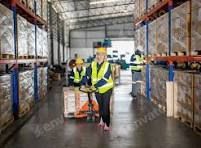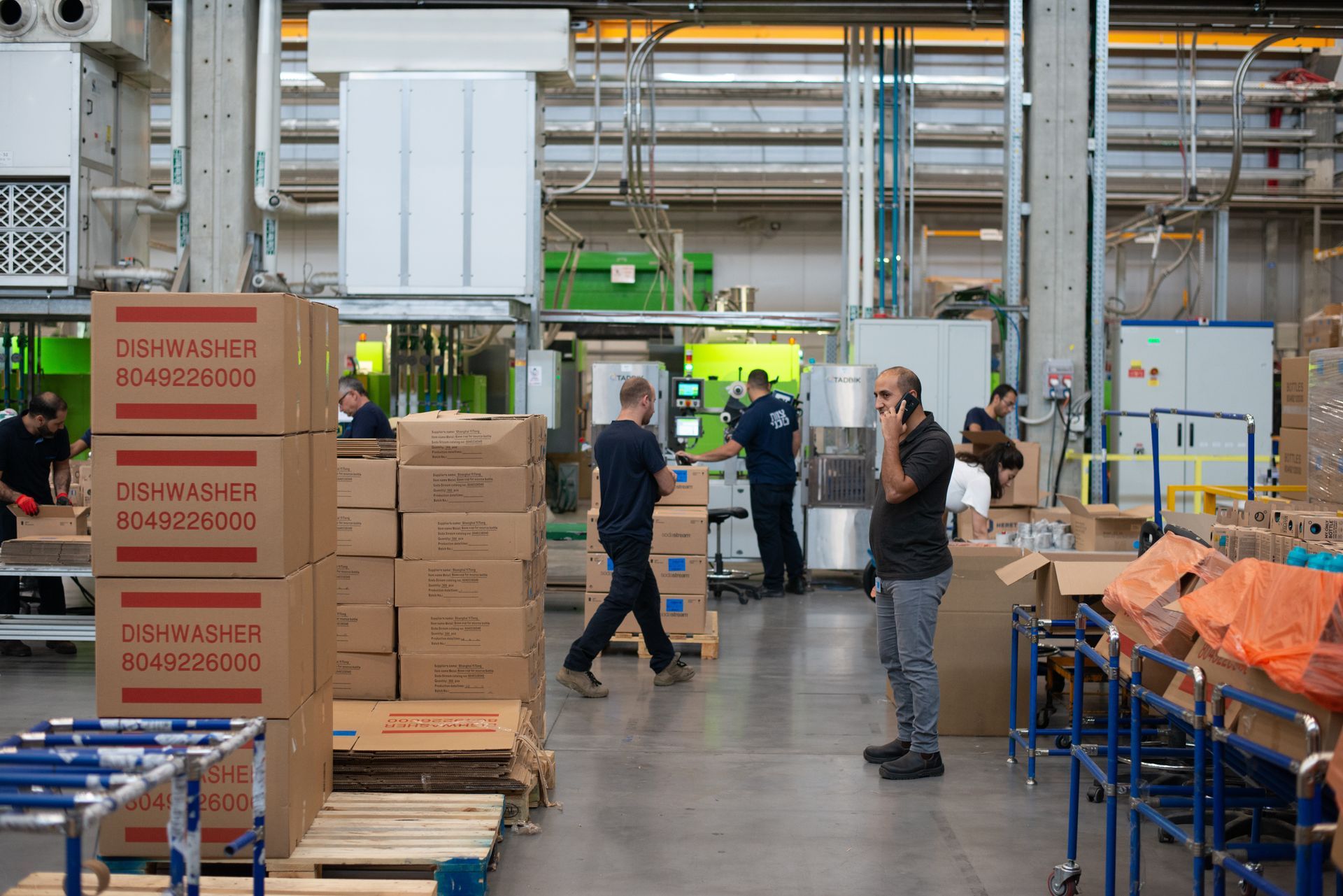Reducing Employee Turnover and Boosting Productivity in the Warehouse Sector
Workforce stability and retention are essential factors to consider for businesses operating in the warehouse sector. High employee turnover rates can negatively affect productivity, disrupt operations, and lead to increased recruitment and training costs.
The warehouse industry, in particular, faces imperative challenges to reduce its carbon footprint and environmental impact. Operations in this sector consume significant energy and resources, amplifying the urgency for environmentally friendly initiatives and business practices.
As an industry-leading staffing company that specializes in the automotive and warehouse sectors, Front Line All Temps is dedicated to supporting warehouse businesses in their transition towards a greener and more sustainable future. By providing specialized staffing solutions, we empower the industry with the human resources needed to adopt and implement forward-looking eco-friendly practices.
Creating a sustainable warehouse operation requires consistent efforts and investments across various areas in the industry. In this blog post, we will discuss essential environmental initiatives and best practices to foster eco-friendly warehouse operations.
Energy Conservation and Management:
One of the most impactful ways to foster sustainable warehouse operations is by focusing on energy conservation and management. Integrating energy-efficient technologies and practices can substantially reduce energy consumption, saving businesses money while diminishing warehouse environmental impact. Here are a few critical strategies:
1. Upgrade to LED lighting: Swapping out traditional incandescent or fluorescent bulbs for energy-efficient LED alternatives can drive significant energy savings and reduce greenhouse gas emissions.
2. Install motion sensor technology: Motion-activated lighting systems can help conserve energy and lower costs by only illuminating areas where and when activity is detected.
3. Optimize HVAC systems: Regular maintenance of heating, ventilation, and air conditioning systems, combined with the use of smart thermostats, can ensure energy efficiency and improve warehouse comfort.
4. Consider solar power: Installing solar panels is an effective long-term solution for lowering energy costs and reducing the environmental impact of warehouse operations.
Waste Reduction and Recycling:
Incorporating waste reduction and recycling initiatives can streamline warehouse operations while diminishing environmental impacts. Sustainable waste management strategies include:
1. Implement a comprehensive recycling program: Encourage employees to participate in recycling efforts by providing clearly labeled recycling bins for various materials, such as paper, plastic, and metal.
2. Embrace reusable packaging materials: Transition from single-use packaging to durable, reusable alternatives, such as plastic containers or pallets, to minimize waste generation and save on disposal costs.
3. Use environmentally friendly materials: Opt for packaging materials that are biodegradable, recyclable, or made from renewable resources to reduce environmental harm.
4. Optimize inventory management: Implement efficient inventory management systems that help prevent overstocking, spoiling, or obsolescence, and minimize unnecessary waste generation.
Green Building Techniques:
Building sustainable warehouse infrastructures is a cornerstone of eco-friendly warehouse operations. Here are some green building techniques to incorporate:
1. Use energy-efficient building materials: Employ environmentally friendly materials, such as insulated concrete forms or recycled steel, in the construction or remodeling of warehouse buildings to minimize energy loss and waste.
2. Green roofing: Install green roofs, which can comprise vegetation or reflective materials, to help insulate the building, mitigate stormwater runoff, and reduce urban heat island effects.
3. LEED certification: Aspire for Leadership in Energy and Environmental Design (LEED) certification to validate your warehouse's commitment to sustainable construction and operation practices.
4. Opt for natural light: Design warehouses with skylights and increased window space to harvest natural sunlight, resulting in reduced energy consumption.
Environmentally Responsible Logistics:
Revamping your logistics network to become environmentally responsible can play a vital role in establishing sustainable warehouse operations. Some key strategies include:
1. Efficient transportation and routing: Optimize routes and distribution schedules to reduce fuel consumption, shorten travel distances, and decrease greenhouse gas emissions.
2. Green vehicles: Transition to energy-efficient delivery vehicles, such as electric or hybrid trucks, to reduce air pollution and greenhouse gas emissions.
3. Collaborative logistics: Partner with other businesses to share warehouse space, transportation, and other resources, which helps to consolidate shipments, reduce costs, and decrease environmental damage.
Employee Awareness and Training:
Employee engagement is crucial to successfully implementing sustainable warehouse practices. Here are some essential initiatives:
1. Develop educational programs: Organize seminars, workshops, and training sessions to educate employees about environmental sustainability in warehouse operations and their respective roles in this process.
2. Encourage and reward green behavior: Recognize and reward employees for incorporating environmentally friendly practices in their daily tasks.
3. Establish a green team: Create a team of eco-champions responsible for overseeing and promoting sustainable practices within the warehouse and suggesting improvements.
4. Lead by example: Encourage management and team leaders to adopt and demonstrate eco-friendly practices to inspire and motivate employees.
Final Thoughts
Transitioning towards environmentally responsible warehouse operations requires a multifaceted approach that addresses energy conservation, waste management, green infrastructures, logistics optimization, and employee engagement. By adopting these initiatives and best practices, businesses in the warehouse sector can significantly reduce their environmental impact, save on costs, and pave the way for a more sustainable, eco-friendly future.
Partner with us at Front Line All Temps to leverage our expertise in staffing and resource management to support and enhance your warehouse's journey toward environmental sustainability. Contact us today for
warehouse industry staffing!










